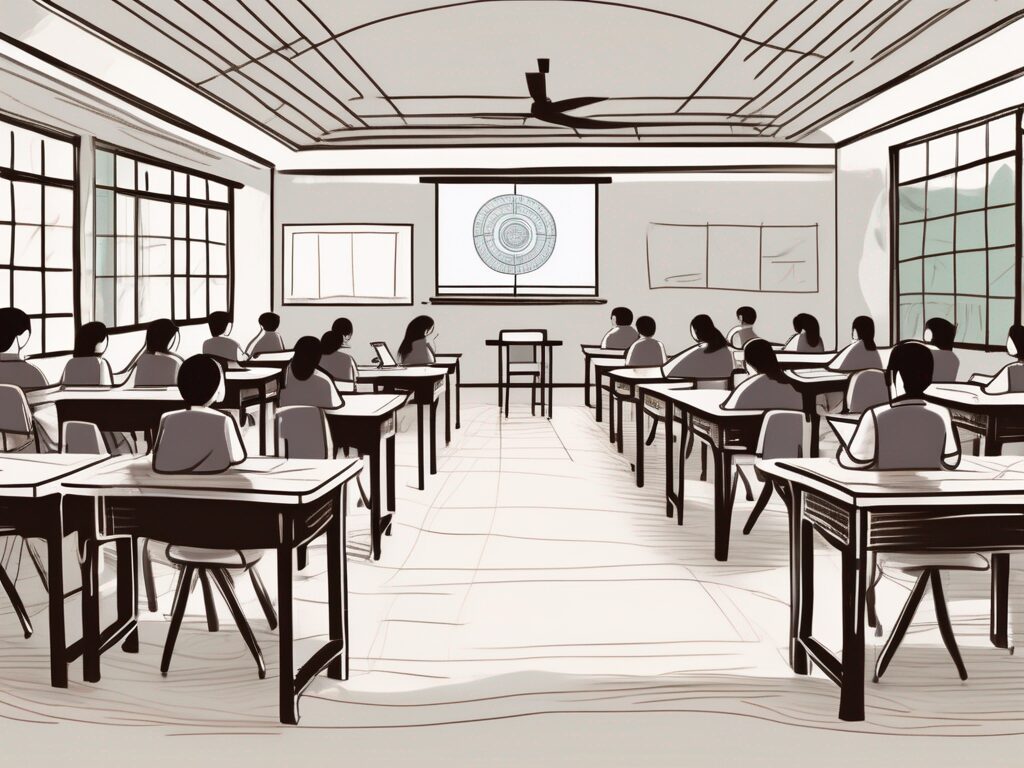In the realm of education, student engagement is a pivotal factor that significantly influences learning outcomes. The term ‘student engagement’ refers to the degree of attention, curiosity, interest, optimism, and passion that students exhibit when they are learning or being taught. This extends to the level of motivation they have to learn and progress in their education. In Cambodia, a country with a rich history and diverse cultural heritage, educators are constantly exploring innovative techniques to enhance student engagement. This article delves into the various strategies employed in Cambodia to foster active participation and engagement among students.
Understanding the Cambodian Educational Landscape
The educational landscape in Cambodia has undergone significant transformations over the years. Following a period of turmoil during the Khmer Rouge regime, the country has made remarkable strides in rebuilding its education system. Today, Cambodia’s education sector is characterised by a blend of traditional and modern teaching methodologies. However, like any other developing country, it faces its fair share of challenges, including resource constraints, teacher quality, and student engagement.
Despite these challenges, the Cambodian government, in collaboration with various non-governmental organisations (NGOs), has been proactive in implementing reforms aimed at improving the quality of education. One of the key focus areas of these reforms is enhancing student engagement, which is seen as a critical component in the learning process.
Techniques for Enhancing Student Engagement
There are several techniques that educators in Cambodia employ to foster student engagement. These techniques are designed to stimulate interest, promote active participation, and encourage critical thinking among students. They range from incorporating technology in teaching to using culturally relevant content to make learning more relatable.
Let’s delve into some of these techniques in more detail.
Use of Technology
Technology has become an integral part of education worldwide, and Cambodia is no exception. Schools are increasingly incorporating technology in their teaching methodologies to make learning more interactive and engaging. For instance, some schools use educational software and online platforms to supplement traditional teaching methods. These tools provide a more visual and interactive learning experience, which can help to capture students’ attention and stimulate their interest in the subject matter.
Moreover, technology can also facilitate personalised learning, which is another effective strategy for enhancing student engagement. Personalised learning involves tailoring the teaching approach to meet the unique needs and learning styles of each student. This can be achieved through adaptive learning technologies, which adjust the content, pace, and level of difficulty based on the student’s performance.
Culturally Relevant Teaching
Another effective technique for enhancing student engagement in Cambodia is the use of culturally relevant teaching. This involves incorporating elements of the local culture and history into the curriculum to make learning more relatable and meaningful for students. For example, lessons on history or literature might include references to Cambodian folklore, traditions, or historical events.
Culturally relevant teaching not only makes learning more engaging, but it also helps to foster a sense of identity and pride among students. It provides them with a deeper understanding of their cultural heritage, which can contribute to their personal development and sense of belonging.
Active Learning Strategies
Active learning strategies are another effective way to enhance student engagement. These strategies involve getting students actively involved in the learning process, rather than passively receiving information. This can be achieved through various methods, such as group discussions, problem-solving activities, and project-based learning.
For instance, in a science lesson, instead of simply explaining the concepts, the teacher might engage the students in an experiment to demonstrate these concepts. This hands-on approach not only makes learning more engaging, but it also helps students to develop critical thinking and problem-solving skills.
Challenges and Future Directions
While these techniques have proven effective in enhancing student engagement in Cambodia, there are still several challenges that need to be addressed. One of the main challenges is the lack of resources, particularly in rural areas. Many schools lack the necessary equipment and infrastructure to incorporate technology in teaching or implement active learning strategies.
Another challenge is the need for teacher training. While the government and NGOs have made efforts to provide teacher training programmes, there is still a need for more comprehensive and ongoing training to equip teachers with the skills and knowledge to effectively implement these engagement techniques.
Looking ahead, it is crucial for the Cambodian education sector to continue exploring and implementing innovative engagement techniques. This will require continued investment in education, as well as collaboration between the government, NGOs, educators, and the community. With the right strategies and resources, Cambodia has the potential to create an engaging and inclusive learning environment that fosters the holistic development of its students.
Empower Your Teaching Career with IPGCE
As Cambodia continues to seek innovative student engagement techniques, the role of skilled educators becomes ever more critical. If you’re an educator looking to enhance your qualifications, deepen your professional development, and expand your career opportunities, the International Postgraduate Certificate in Education (iPGCE) is your gateway to success. Join a global network of professionals, increase your adaptability to international curricula, and enjoy the benefits of flexible online study options. Embrace the opportunity to be part of the UK’s #1 Teacher Training Course and witness a transformation in your career trajectory. Join the iPGCE program today and take the first step towards overcoming the barriers to becoming a qualified international educator.

